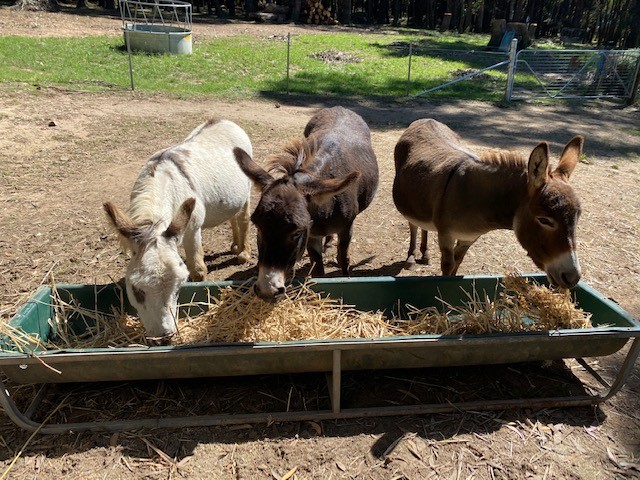Donkey characteristics
All donkeys are classified as equus africanus asinus, including the miniature donkey. However miniature donkeys are a particular breed that is different to small donkeys. Unlike horses donkeys are not easily startled and have a keen sense of curiosity. They are more independent in their thinking than horses and will reason, then make decisions based on their safety. Donkeys have a reputation for stubbornness due to their highly developed sense of self preservation. Thus, it is difficult to force or frighten a donkey into doing something it sees as contrary to its own best interest or safety.
Training a donkey relies upon showing them by gentle words and action. They need to see that they can trust you and you will protect them from harm. They learn what it is we want of them if we take time to gently show them. They remember everything!
https://www.high-endrolex.com/20
Donkeys originate from desert areas of the earth and in this environment a donkey can hear the call of another donkey 96.5 kms. This acute hearing is due to their large ears which also help to keep them cool. They don’t like the rain and being out in it for long periods can damage their health as their fur is not waterproof.
As food is scarce in the desert, donkeys utilise 95% of what they eat making their manure a poor fertilizer and their digestive system can break down uneatable vegetation and extract moisture from food more efficiently.
